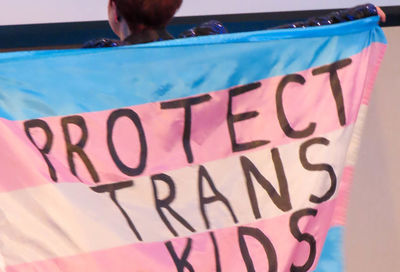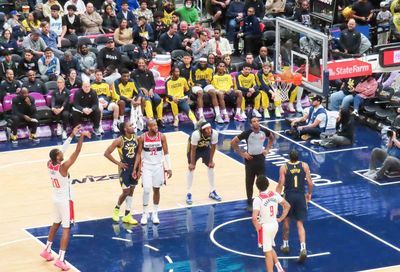D.C. Monkeypox Clinics to Offer Walk-Up Vaccinations
City residents will no longer have to pre-register for appointments, but vaccinations will be subject to availability at 3 different locations.

Starting on Friday, Sept. 23, D.C. residents will no longer be required to pre-register for monkeypox vaccination appointments. Going forward, all three of the city’s clinics will offer walk-up services to those interested in receiving their first or second doses.
Residents who have already received their first dose through a pre-registered appointment will receive an email on how to obtain a second dose. Beginning on Sept. 23, those receiving their first dose will receive a written reminder of when to return for their second dose — typically between 24 to 32 days afterwards.
The city currently has three clinics offering the monkeypox vaccine: one in Ward 2, at 1900 I St NW, which is open from Sunday through Friday from 12-8 p.m.; one in Ward 4, at 7530 Georgia Ave NW, open from Sunday through Friday from 12-8 p.m.; and one in Ward 8, at 3640 Martin Luther King Jr. Ave SE, open from Monday through Saturday from 12-8 p.m.
Vaccination doses will be subject to availability at each of the clinics. Residents are encouraged to follow DC Health’s social media channels for updates on availability at each site, according to a press release from DC Health and the office of D.C. Mayor Muriel Bowser.
The monkeypox vaccine is currently available to all District residents, individuals who reside elsewhere but work in the District, students at D.C. universities and colleges, and people affiliated with DC Health Programs that receive health care services in the District who are over the age of 18.
Those recommended to get the vaccine include any person, of any sexual orientation or gender, who have had multiple sex partners in the past two weeks, those living with HIV/AIDS, and those who have been diagnosed with any sexually transmitted infection in the past three months. At particular risk are men who have sex with men who are not in a monogamous relationship, transgender individuals, sex workers, and staff at establishments were sexual activity may occur.
Monkeypox is a viral illness that can be transmitted from person to person through contact with the rash, scabs, or bodily fluids or an infected person, and is often spread through periods of prolonged intimate physical contact, including sex, kissing, or hugging. It may also spread through respiratory secretions during prolonged face-to-face contact and through fomites, or materials such as bedding or towels, used by a person infected with the virus.
Initial symptoms of monkeypox include fever, headache, muscle aches, swollen lymph nodes, and a rash and lesions on the skin. Most cases do not require hospitalization, but can be extremely uncomfortable. Those showing symptoms of potential infection should contact their primary care provider, even if they don’t think they’ve had contact with someone who has monkeypox.
For more information about monkeypox or D.C.’s monkeypox clinics, visit PreventMonkeypox.dc.gov.
Support Metro Weekly’s Journalism
These are challenging times for news organizations. And yet it’s crucial we stay active and provide vital resources and information to both our local readers and the world. So won’t you please take a moment and consider supporting Metro Weekly with a membership? For as little as $5 a month, you can help ensure Metro Weekly magazine and MetroWeekly.com remain free, viable resources as we provide the best, most diverse, culturally-resonant LGBTQ coverage in both the D.C. region and around the world. Memberships come with exclusive perks and discounts, your own personal digital delivery of each week’s magazine (and an archive), access to our Member's Lounge when it launches this fall, and exclusive members-only items like Metro Weekly Membership Mugs and Tote Bags! Check out all our membership levels here and please join us today!


















You must be logged in to post a comment.